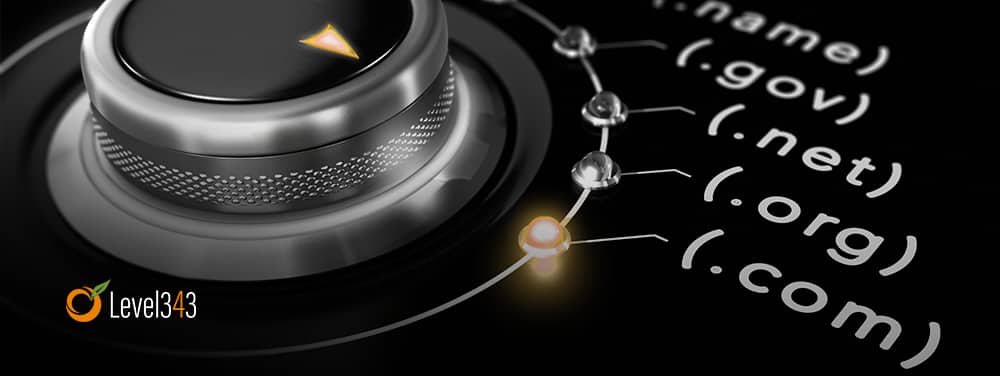What’s in a name? Well, as it turns out, quite a lot when it’s a domain name. As our first feature installment of Website Audit Basics we’re talking about unique domain names. Find out what they are, and why they’re important enough to figure into our comprehensives website audit checklist.
WHAT’S A DOMAIN?
A domain, for the uninitiated, is the address you use in the search bar, such as example.com. Much like writing your address on an envelope tells the post office where to deliver your mail, the domain of your website tells the browser where to find your website files.
WHAT IS THE DIFFERENCE BETWEEN A WEBSITE AND A DOMAIN?
A website and a domain are two different things, and they can both be owned without the other.
A website is a collection of text, images, and so on, such as what you’re on now. This space IS the website. A domain, as mentioned before, is what you use to find the websites.
Contrary to popular thought, you can actually have a website without a domain, and a domain without a website. However, having a domain without a website is like having a P.O. Box. You still get your mail, but you can’t sleep there.
UNIQUE DOMAIN NAMES
There are several ways to build a website. As mentioned above, not all of them require the purchase of a domain. You can choose to simply reach your website by its IP address, which looks something like this: 172.67.132.78.
You can also piggyback off someone else’s domain, such as wordpress.com. In this case, your domain would be something like this: mysite.wordpress.com
-But there’s a third option, and that’s with a unique domain name.
Choosing the right domain name for your business is extremely important. A unique domain name fits your site. Much of the time, it’s the name of your business. Google.com, for example, or CNN.com, Level343.com, etc. Other times, it’s what you do, such as the case with hotels.com.
It used to be that there were only a few endings, and they meant something. For example:
- .com = commercial
- .edu = educational
- .gov = government
Now, however, many more domain endings have been cleared to be used, allowing more flexibility. Google Domains offers over 300 possible endings.
Finding the Perfect Domain
You can find unique domain name ideas in many ways. One way is to use a name generator, such as Nameboy.com. You’ll get a Bluehost ad pop up, but the generator is free, and can help you build ideas.
Once you have the one you want, check the domain to make sure it isn’t used. Although it’s not necessary, I recommend registering the domain with the same company you plan on using for web hosting.
Further Reading: How to Come Up With a Good Domain Name on Google Domains
WHY DO WE LOOK AT Unique DOMAIN names FOR A WEBSITE AUDIT?
With so many choices, is there any real wrong way to develop a domain? Yes, and that’s what we visit with our website audits. Of course, it’s better to consult about your domain name before choosing it, but that’s not always an option.
A few points we look at:
Is the domain name unique or piggybacked? We want to make sure that your domain name shows off your brand, not someone else’s. This is especially important in search engine results, because you want visitors from search to see “yourbrand.com”, not “yourbrand.wordpress.com”.
Is it easy to remember? Although you want your domain name to reflect either your brand or your services/product, the first order of business is to make sure people can remember it. Too long, too complex or too witty and you may have a harder time getting visitors.
Is it copyrighted? Using phrases and words that have copyright protection or have been trademarked in your domain name can cause you no end of headaches. We check to see if there’s a company out there that might want to come after you.
CONCLUSION
We seldom recommend a domain change, and we’ve only done it once for a large, established company (under very specific circumstances). However, the fact that we’ve had to a time or three is one of the reasons why we include it in our website audits.
As you look at your domain name today, ask yourselves these questions:
- Is it unique?
- Is it easy to remember?
- Does it match my brand or service offerings?
If you can answer yes to these questions, congratulations! You’ve passed the very first checkpoint of your website audit!



































